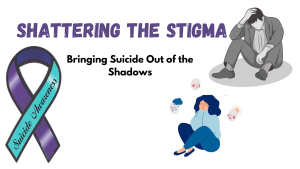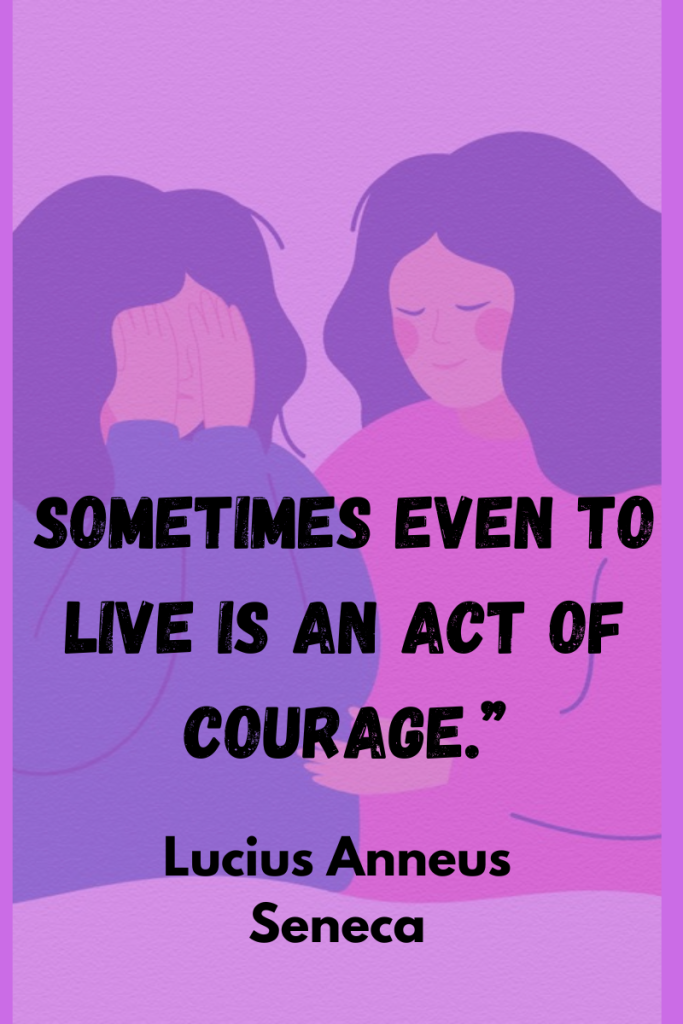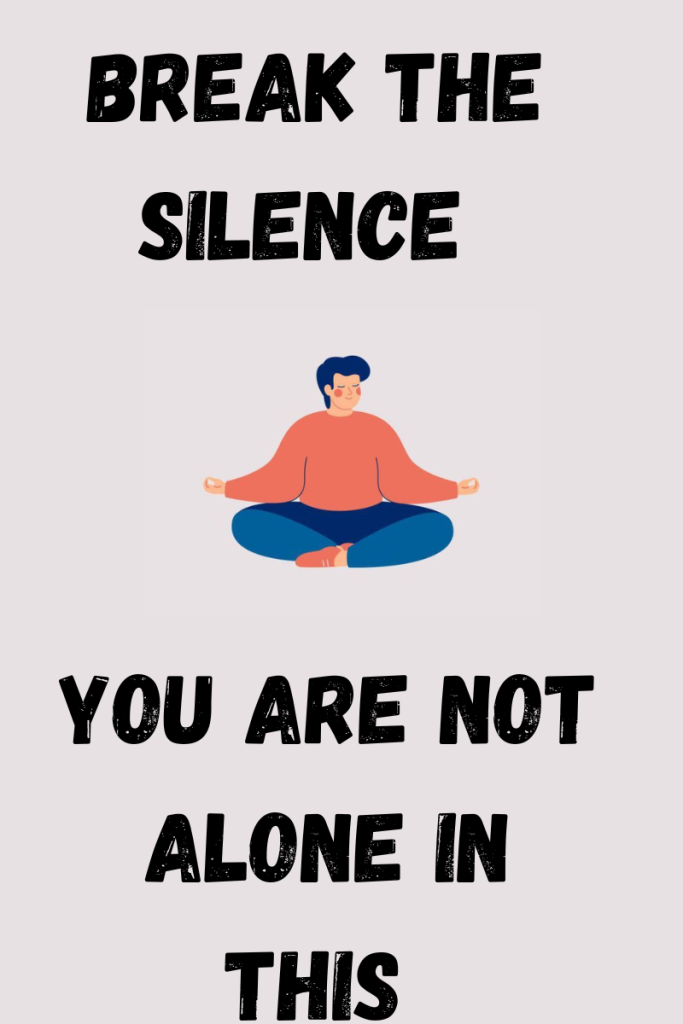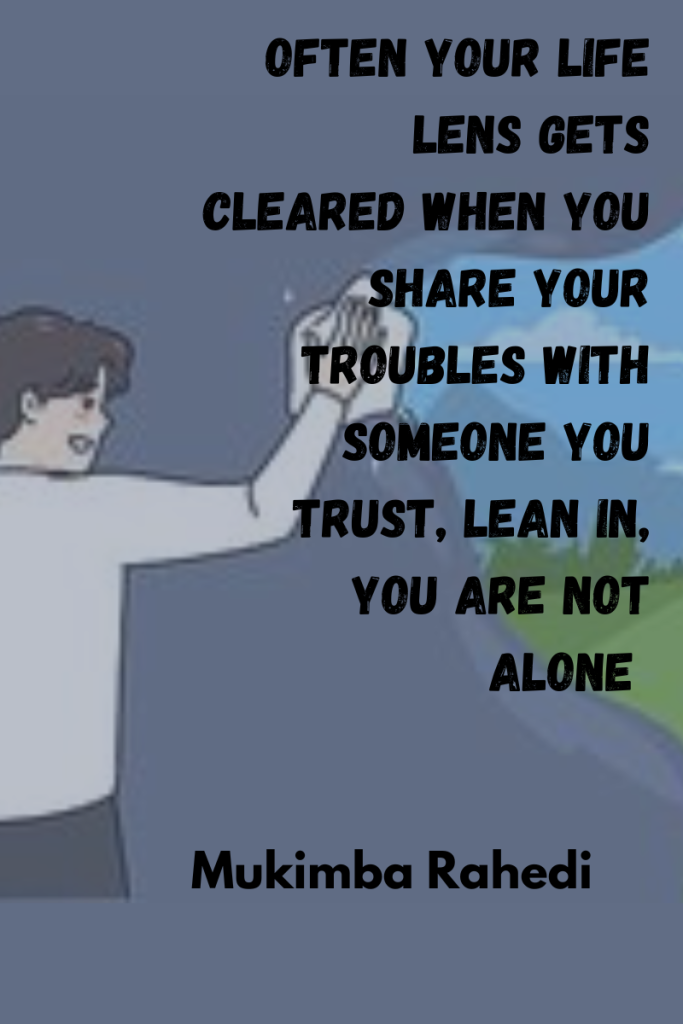
In a recent conversation with the visionary mind behind the Mending Minds Foundation and the voice of conversations in Circling The Rabbit Hole podcast, we delved into the critical topic of suicide as September marks Suicide Awareness Month. This dialogue underscored the urgent need to give voice to a subject that is often shrouded in silence and stigma. By openly discussing
suicide, we can foster understanding, compassion, and support for those who are struggling.
Creating safe spaces where individuals feel empowered to share their experiences and seek help without fear of judgment is essential.

The detrimental effects of avoiding conversations about suicide are profound and far-reaching.
When we remain silent, we inadvertently perpetuate the stigma that surrounds mental health issues, leaving many individuals feeling isolated and unheard.
This silence can lead to a lack of awareness about the signs of distress, making it difficult for friends, family, and communities to recognize when someone is in crisis. Ultimately, failing to engage in these crucial conversations can contribute to a cycle of despair, where those in need suffer in silence, and the tragic
consequences of suicide continue to rise.
It helps to sit down with statistics on mental health, especially in our backyard to truly understand that not having conversations is truly the least effective strategy in preventing something that continues to affect almost each one of our households. And it continues to get worse.
Suicide Trends in Kenya
Statistics
– According to the World Health Organization (WHO), Kenya has a suicide rate of 6.5 per 100,000 people (2021).
– There has been a noticeable increase in suicide cases, with more than 500 suicides reported in the first half of 2021 alone.
Demographic Insights
– Higher prevalence among young adults (15-29 years).
– Men are more likely to die by suicide compared to women with a 4:1 ratio
Suicide is a complex issue influenced by various mental health issues. Disorders such as depression and anxiety are among the leading causes, highlighting the critical need for mental health awareness and support. Individuals struggling with these conditions often find themselves in a vulnerable state, making it essential to address these underlying problems.
In addition to mental health and illness being a contributing factor to suicidal ideation and tendencies, socioeconomic factors play a significant role in the risk of suicide. Issues like unemployment, poverty, and financial stress can create overwhelming pressure, leading individuals to feel hopeless. These factors are often intertwined, creating a cycle that can be difficult to escape.
Social factors also contribute to the risk of suicide. Family conflicts, relationship issues, and societal pressures can exacerbate feelings of isolation and despair. It is crucial to foster supportive environments that encourage open communication and connection among individuals facing these challenges.
Moreover, substance abuse is a major risk factor for suicide. The misuse of alcohol and drugs can impair judgment and increase impulsivity, leading to tragic outcomes. Addressing substance abuse through prevention and treatment programs is vital in reducing suicide rates.
The impact of suicide extends far beyond the individual. For families, the emotional and psychological trauma can be devastating. The loss of a loved one often results in a significant financial burden, especially if the deceased was a primary breadwinner.
On a societal level, suicide leads to the loss of productive members, which can strain healthcare systems and increase costs associated with mental health services. Economically, the estimated losses due to premature deaths and decreased productivity are staggering, underscoring the urgent need for effective interventions.
Understanding the causes and impacts of suicide is essential for developing comprehensive strategies to prevent it. By addressing mental health issues, socioeconomic challenges, social dynamics, and substance abuse, we can work towards a future where fewer lives are lost to this tragic outcome.
As we observe Suicide Awareness Month, it is crucial to highlight the existing frameworks aimed at preventing suicide and promoting mental health in Kenya. The National Mental Health Policy (2015-2030) is a significant initiative that seeks to enhance mental health services, reduce stigma, and integrate mental health care into primary healthcare systems. This policy is vital in creating an environment where individuals feel safe to seek help without fear of judgment.

Complementing this is the Kenya Mental Health Action Plan (2021-2025), which focuses on increasing mental health awareness, facilitating early intervention, and improving access to mental health care. These policies are essential in addressing the rising concerns surrounding mental health and suicide, especially during Suicide Awareness Month when the focus is on educating the public about these critical issues.
Suicide Prevention Response Lines
In Kenya, several organizations provide vital support through toll-free hotlines that operate 24/7, including the Kenya Red Cross and Befrienders Kenya. These helplines are crucial resources for individuals in crisis, offering immediate assistance and support. The Ministry of Health also plays a pivotal role by supporting mental health hotlines and crisis intervention services,
ensuring that help is accessible to those in need.
Non-governmental organizations (NGOs) contribute significantly to suicide prevention efforts by offering counseling services and support groups. Their involvement is particularly important during Suicide Awareness Month, as they help raise awareness and provide essential resources to at-risk populations. One very crucial partner in these efforts has been the Mending Minds Foundation.
Effectiveness of Response Lines
The effectiveness of these response lines can be seen in their reach and accessibility. Increased awareness has led to higher utilization of helplines among at-risk individuals, resulting in numerous success stories where lives have been saved through timely intervention. However, challenges remain, including the stigma surrounding mental health and seeking help, limited resources, and the urgent need for more trained counselors.

Recommendations for Improvement
To enhance suicide prevention efforts, several recommendations can be made. First, there is a need to increase funding for mental health services and suicide prevention programs.
Additionally, public awareness campaigns are essential to reduce stigma and encourage individuals to seek help.
Training and capacity building for mental health professionals and volunteers are also critical, especially for those who are often the first point of contact for at-risk populations.
Training of first responders and first points of contact would be a very great pursuit in ensuring that teachers, doctors and other points of contact are well equipped with suicide first aid.
Finally, effective policy implementation and monitoring are necessary to ensure that these initiatives are regularly reviewed and improved.
Conclusion and Call to Action
As we reflect on the importance of suicide prevention during this month, it is clear that a multifaceted approach is required. This includes accurate data collection, effective policies, robust support systems, and active public engagement. A collective effort from the government, NGOs, communities, and individuals is essential to create a supportive environment for mental health. Together, we can make a difference in the lives of those struggling with mental health issues and prevent suicide.
References
1. World Health Organization (WHO). (2021). Suicide worldwide in 2019.
2. Ministry of Health, Kenya. (2021). Annual Health Sector Performance Report.
3. Kenya National Bureau of Statistics (KNBS). (2020). Demographic and Health Survey.
4. Republic of Kenya. (2015). National Mental Health Policy 2015-2030.
5. Ministry of Health, Kenya. (2021). Kenya Mental Health Action Plan 2021-2025.

